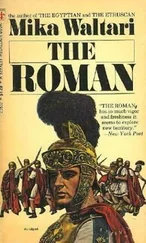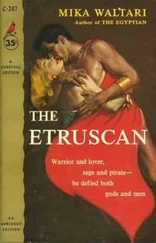I answered sorrowfully, “While the cat’s away the mice will play. I shall not abate my loyalty to the Grand Vizier just because he has suffered defeat. Now more than ever does he need a friend’s support, and I’ll merely remind you of the old proverb, he laughs best who laughs last.”
“I shall laugh, never fear! Expect no sympathy from me if you choose to ruin yourself. But there’s still time. I have spoken to Khurrem on your behalf and she is willing to forgive you, for the sake of Prince Jehangir. I may tell you in confidence that she does not blame Khaireddin for his defeat and is ready to put in a word for him too if you humbly ask it of her. Such is the honesty of this good and devout lady.”
I suspected deceit, having learned to mistrust everyone and especially Giulia. But next day Sultana Khurrem sent her pleasure barge to fetch me to the Seraglio, where she received me in her own porphyry chamber in the Court of Bliss. At first she spoke from behind a curtain, but later she drew it aside and revealed her face to me. Her immodest behavior showed how customs here had changed in a few years. At the time when I became the Sultan’s slave certain death awaited every man who beheld a woman of the harem unveiled, even by accident.
The Sultana spoke to me in a playful, teasing tone and gurgled with laughter as if someone were tickling her. Yet her eyes were cold and hard, and at length she ordered me to tell her openly and without reserve all that I had seen and done in Tunis and what had happened afterward. I at once admitted Khaireddin’s reverses, but in his defense went on to speak of his success in the later part of the summer, and assured her that with my own eyes I had seen eighteen big galleys under construction at Algiers, so that by the spring Khaireddin’s fleet would be ready to rule the seas once more.
Khurrem held her head a little sideways as she listened, and a smile played continually over her beautiful lips. It seemed to me that she was paying more attention to my appearance than to what I was saying, and at last she remarked absently, “Khaireddin Barbarossa is a devout and valiant man and a faithful servant of the Sultan. The Prophet himself appears to him in dreams and when he shakes his long beard he looks like a lion with a luxuriant mane. He needs no one to speak in his defense, for I know best how to win my lord’s favor for him. But still you have not told me everything, Michael el-Hakim. Why did you go to Tunis in the first place? And what message was it that the malignant Grand Vizier sent by you to Khaireddin and dared not put into writing?”
I stared at her, disconcerted, unable to guess at her meaning. Then I licked my lips and mumbled something. She encouraged me laughingly, “Michael el-Hakim, you’re a great rogue. Confess honestly that Seraskier Ibrahim sent you to Tunis to inquire secretly whether Khaireddin would acknowledge the Grand Vizier’s title of Seraskier-sultan. If he said yes, you were to bid him to take his fleet to the Sea of Marmara and await further orders. But the Emperor’s unexpected attack foiled these ugly schemes and Khaireddin was saved from making a negative reply, which would have brought down upon him the Grand Vizier’s wrath.”
“Allah is Allah!” I exclaimed in dismay. “That is nonsense-base lies from beginning to end. The Grand Vizier sent me to warn Khaireddin against the Emperor’s false promises, for Charles had offered to make him king of Africa.”
“Quite so,” assented Khurrem hastily. “Then the Grand Vizier ordered you to tell Khaireddin that it lay in his power to make him king of Africa with the right to appoint his own heirs. Then with the Emperor as ruler of Europe and the Seraskier-sultan as ruler of Asia, Khaireddin would take his place as the third of the world’s sovereigns.”
“What do you mean by that foolish title Seraskier-sultan?” I demanded, so exasperated that I forgot my lowly position. “You turn everything upsidedown. I had no such mission and my only object has been to serve the Sultan loyally. Neither Khaireddin nor I can be blamed for the defeat and I have nothing to add, since you will persist in distorting the truth.”
The smile faded from the Sultana’s lips and her plump face became a chalky mask. Her eyes took on an icy blue glint, and for a moment I seemed to be face to face with a monster in human form. Yet this singular expression vanished so quickly that I fancied I must have dreamed it or been bewitched by her look.
Presently she said in her usual cooing tones, “Perhaps you are speaking the truth and my informant was mistaken. I can only rejoice that all serve the Sultan so loyally and faithfully. You have greatly relieved my mind, Michael el-Hakim; you deserve liberal reward, and I shall not forget to put in a good word for you with the Sultan. Perhaps I am foolish to imagine that so gifted a man as the Grand Vizier would do anything behind his lord’s back. We must wait and see. All will turn out for the best and you and I will be silent about the whole distressing affair.”
She smiled at me again in her bewitching manner, but the cold glint remained in her eye as she repeated the words that seemed to veil a stern warning: “All will turn out for the best, and you and I will be silent about the whole distressing affair.”
With this she made a sign with her plump hand and a slave girl dropped the curtain between us.
As I returned through the splendid courtyards of the Seraglio I was overcome by a sense of unreality. This was like a story, or a dream, and I seemed to have been through it all before. I looked at the countless slaves who from the highest to the lowest turned their backs on me, and they no longer appeared to me as living people. It was as if they had no faces of their own, and only by their clothes, headdresses, sticks, whips, ladles, and other tokens of rank could I tell their position and occupation. They looked like nothing so much as brilliant beetles. Any one of them could have changed places with any other without altering the pattern. All would go on in the same empty way and with the same senseless and outmoded customs as before.
I seemed tQ stand outside. I no longer brooded over myself or my fate. I felt only an unspeakable weariness and depression, and the vanity of it all was like a raw December day in my heart.
At the beginning of January, 1536, Sultan Suleiman arrived at Scutari on the opposite shore of the Marmara, and allowed members of the Divan to help him from the saddle as a sign that the Persian campaign was at an end. The Grand Vizier had secretly ordered the building of a splendid barge, well able to compare with the fabled “Bucentoro” of the Doge of Venice, so that in a manner worthy of the conquerer of Persia the Sultan might glide over to Istanbul amid the thunder of salutes.
Once more the names of captured fortresses and cities were proclaimed to the populace. Once more the bonfires blazed for nights on end and the people roared their acclamations of the returning spahis and janissaries. But this time the joy was forced, as if evil forebodings had poisoned the mood of triumph. Moreover, the army had suffered very severe losses on the retreat, on account of both the Persian cavalry attacks and the bad weather, and many wives bitterly mourned their dead husbands, though they might do this only in solitude and within the four walls of their homes.
After the days of jubilation, life in the capital resumed its normal course, and no foreigner would have noticed any change. King Francis I’s representative, who had attended the Sultan from Bagdad to Tabriz and back to Istanbul, was rewarded for his trouble by the Sultan’s consent to a commercial treaty with France. Slaves of French birth in the Sultan’s dominions were given their freedom and all things pointed to the fact that King Francis, having learned nothing from former failures, was preparing for another war against the Emperor. Khaireddin did not fall into disgrace as many had hoped; on the contrary, the treaty was drawn up in his name and he was designated therein as king of Algeria. Without this, ill feeling would have been aroused among both Moslems and Christians. As it was, many otherwise shrewd Moslems blamed the Grand Vizier for secretly favoring the Christians, just as he had been blamed for protecting the Shiite heretics at the Ottoman army’s expense. But by this time all evil that occurred was laid at his door, to blacken his face and undermine his position, while all good was credited to the Sultan.
Читать дальше











